Resources
The capstone course is supposed to serve as the final building block of our students’ education. Faculty in the religious studies department at Hendrix College felt the need to supplement the capstone metaphor with an additional one: “springboard.” We wanted to connect with recent trends in higher education that help students understand the ways in which they are prepared for employment and for life. To this end, we developed a senior colloquium course that integrates the various educational experiences of the students and, in partnership with our career services department, springboards them into their future lives. This article explains the process we went through and the three content areas covered in the course: intellectual autobiography, career preparation, and the research project.
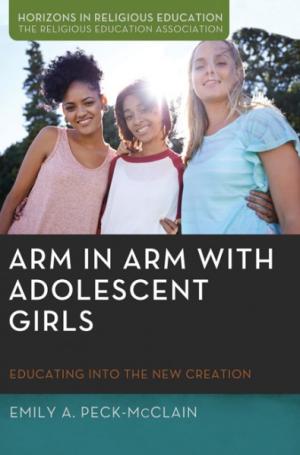
Adolescent girls are filled with passion, excitement, joy, critique, wit, and energy, even as they face and overcome a wide variety of difficult challenges. Some challenges are spirit- and even life-threatening. The stories of more than twenty adolescent girls are put into dialogue with the Apostle Paul, especially in Rom 6–8. Through that perhaps unlikely pairing, those who love and work with adolescent girls will find a depth of understanding and a call to action. Christian educators, pastors, youth workers, parents, and adolescent girls will find a new way to look at the world around them and a new way to bring Scripture to bear on real-life experience. By offering this powerful, scripturally-grounded approach to the world around us, adolescent girls and others will learn compelling methods for putting a new perspective into action in their personal lives, social circles, and churches. This thoughtful and respectful look at the lives of adolescent girls seeks to equip faithful Christians in the church to use their prophetic voices to call out the sins of racism, sexism, homophobia, and sizeism in the experiences of these strong and resilient girls. (From the Publisher.)
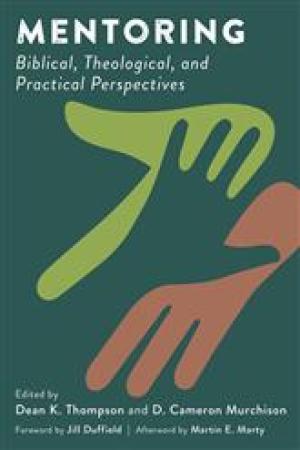
Click Here for Book Review Positive mentoring relationships are essential to the formation of strong Christian leaders. This simple truth is often held as self-evident, but why? How can theological and biblical insights inform mentoring relationships? And what do these vital relationships look like across a range of Christian experience? Opening multiple angles of vision on the practice of mentoring, Dean K. Thompson and D. Cameron Murchison have assembled an eminent group of scholars to reflect on these and other pressing questions. With contributions from twenty-one remarkable writers, this broad-ranging volume explores mentoring in biblical and theological perspective, within the context of diverse national and international communities, and across generations. (From the Publisher)
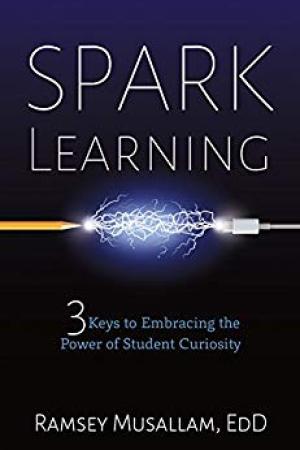
In 2008, Ramsey Musallam was stuck in what he describes as an ineffective rut of "pseudoteaching." Students liked him, but they didn't get the point of his lessons. They did well enough on the tests, but they failed to really understand the material. He wanted more--for them and for himself. Maybe you can relate. For Ramsey, the journey to a better way of teaching began not in the classroom, but on the operating table where he underwent a new, lifesaving heart surgery. His surgeon's confidence, dedication, and curiosity sparked an idea in Ramsey: What if teachers adopted the qualities his surgeon exhibited and were inquisitive, ready to explore, discover, try, and, yes, even fail? What if students could learn to adopt those traits as well? Those questions launched a quest to inspire inquiry and harness its benefits. (From the Publisher)
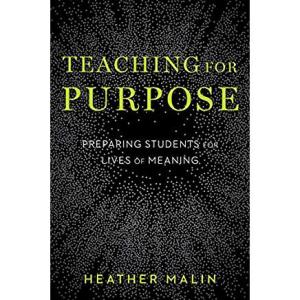
In Teaching for Purpose, Heather Malin explores the idea of purpose as the purpose of education and shows how educators can prepare youth to live intentional, fulfilling lives. The book highlights the important role that purpose—defined as “a future-directed goal that is personally meaningful and aimed at contributing to something larger than the self”—plays in optimal youth development and in motivating students to promote the cognitive and noncognitive skills that teachers want to instill. Based on a decade of research conducted at the Stanford University Center on Adolescence, the book explores how educators and schools can promote purpose through attention to school culture, curriculum, project learning, service learning, and other opportunities. Malin argues for expansive thinking on the direction schools should take, especially in terms of educating students to be creative, innovative, and self-directed critical thinkers. The book includes profiles of six organizations working in schools across the US that have made purpose development a priority. Infused with the engaging voices of purposeful youth, Teaching for Purpose offers a fresh, inspirational guide for educators who are looking for new ways to support students to succeed not only in school, but in life. (From the Publisher)
How is PhD pedagogy conceptualised in contemporary discourse? Doctoral pedagogy is usually figured as supervision, often, in particular in literature and popular culture, in the traditional dyadic form. Like other kinds of teachers, supervisors seem to hold a fascination, particularly for writers of novels and television dramas. In research literature, the attention garnered by supervision stems from another goal, a sense of needing to be more reflexive about it as a form teaching, usually by showing supervision at work through transcripts of supervisory meetings or through student and supervisor accounts of their experience of supervision. This examination of what is (or was) essentially a private form of teaching has operated in tandem with an increased scrutiny on supervision by institutions, as articulated in institutional policies, and a fostering of self-induced scrutiny through manuals on supervision. Both of these trends are suggestive of a perception at the end of the twentieth century, aided by studies showing high attrition rates and lengthy times to submission, that supervision was often not going well.
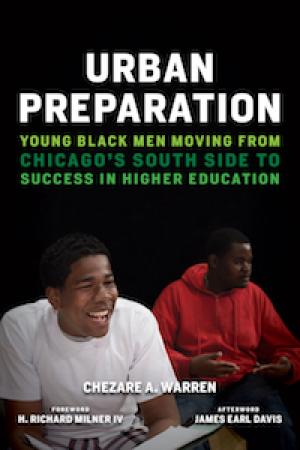
Click Here for Book Review Chezare A. Warren chronicles the transition of a cohort of young Black males from Urban Prep Charter Academy for Young Men to their early experiences in higher education. A rich and closely observed account of a mission-driven school and its students, Urban Preparation makes a significant contribution to our understanding of how young males of color can best be served in schools throughout the United States today. A founding teacher at Urban Prep, Warren offers a detailed exploration of what this single-sex public high school on the South Side of Chicago has managed to accomplish amid profoundly challenging circumstances. He provides a comprehensive portrait of the school—its leaders, teachers, and professional staff; its students; and the community that the school aims to serve—and highlights how preparation for higher education is central to its mission. Warren focuses on three main goals: to describe Urban Prep’s plans and efforts to prepare young Black males for college; to understand how race, community, poverty, and the school contributed, in complex and interrelated ways, to the academic goals of these students; and to offer a wide-ranging set of conclusions about the school environments and conditions that might help young Black males throughout the country succeed in high school and college. (From the Publisher)
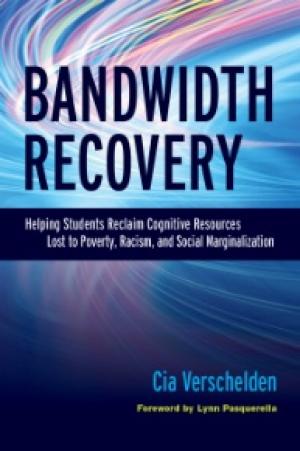
This book argues that the cognitive resources for learning of over half our young people have been diminished by the negative effects of economic insecurity, discrimination and hostility against non-majority groups based on race, ethnicity, sexual orientation, or gender identity, and other aspects of difference. Recognizing that these students are no different than their peers in terms of cognitive capacity, this book offers a set of strategies and interventions to rebuild the available cognitive resources necessary to succeed in college and reach their full potential.>br> Members of these groups systematically experience conditions in their lives that result in chronic stress and, therefore, decreased physical and mental health and social and economic opportunity. The costs of the many kinds of scarcity in their lives – money, health, respect, safety, affirmation, choices, belonging – is seriously reduced “mental bandwidth,” the cognitive and emotional resources needed to deal with making good decisions, learning, healthy relationships, and more. People who are operating with depleted mental bandwidth are less able to succeed in school, starting in childhood, and are much less likely to make it to college. For those who do make it, their bandwidth capacity often interferes with learning, and therefore, persisting and graduating from college. This book presents variety of evidence-based interventions that have been shown, through implementation in high schools and colleges, to help students to regain bandwidth. They are variously intended for application inside and outside the classroom and address not only cognitive processes but also social-psychological, non-cognitive factors that are relevant to the college environment as a whole. Beginning with an analysis of the impacts on mental and physical health and cognitive capacity, of poverty, racism, and other forms of social marginalization, Cia Verschelden presents strategies for promoting a growth mindset and self-efficacy, for developing supports that build upon students’ values and prior knowledge and for creating learning environments both in and out of the classroom so students can feel a sense of belonging and community. She addresses issues of stereotyping and exclusion and discusses institutional structures and processes that create identity-safe rather than identity-threat learning environment. This book is intended for faculty, student affairs professionals, and college and university administrators, all of whom have an interest in creating learning environments where all students have a chance to succeed. (From the Publisher)
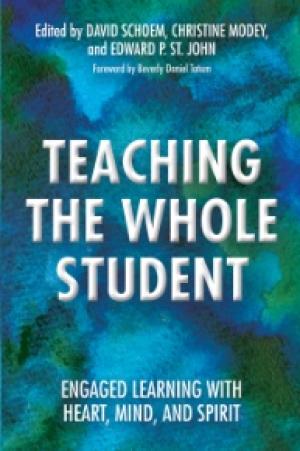
Click Here for Book Review Teaching the Whole Student is a compendium of engaged teaching approaches by faculty across disciplines. These inspiring authors offer models for instructors who care deeply about their students, respect and recognize students’ social identities and lived experiences, and are interested in creating community and environments of openness and trust to foster deep-learning, academic success, and meaning-making. The authors in this volume stretch the boundaries of academic learning and the classroom experience by seeking to identify the space between subject matter and a student's core values and prior knowledge. They work to find the interconnectedness of knowledge, understanding, meaning, inquiry and truth. They appreciate that students bring their full lives and experiences—their heart and spirit—into the classroom just as they bring their minds and intellectual inquiry. These approaches contribute to student learning and the core academic purposes of higher education, help students find meaning and purpose in their lives, and help strengthen our diverse democracy through students’ active participation and leadership in civic life. They also have a demonstrated impact on critical and analytical thinking, student retention and academic success, personal well-being, commitments to civic engagement, diversity, and social justice. Topics discussed: • Teacher-student relationships and community building • How teaching the whole student increases persistence and completion rates • How an open learning environment fosters critical understanding • Strategies for developing deep social and personal reflection in experiential education and service learning The authors of this book remind us in poignant and empirical ways of the importance of teaching the whole student, as the book's title reflects. (From the Publisher)
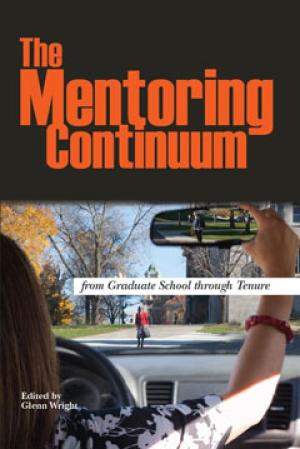
Skill at mentoring has . . . attained a certain cachet among those at all career stages who find in it an alternative way of being in academe-one that tilts away from the endemic competition of the research environment in favor of cooperation and mutual purpose. Part of mentoring’s appeal lies in its ability to gesture in two directions at once: forward . . . to new modalities and more egalitarian relationships, and backward, to a tradition of cross-generational support and identification as old as universities themselves, and that continues to feed the romance of the academic life in the minds of would-be faculty. (From the Publisher)